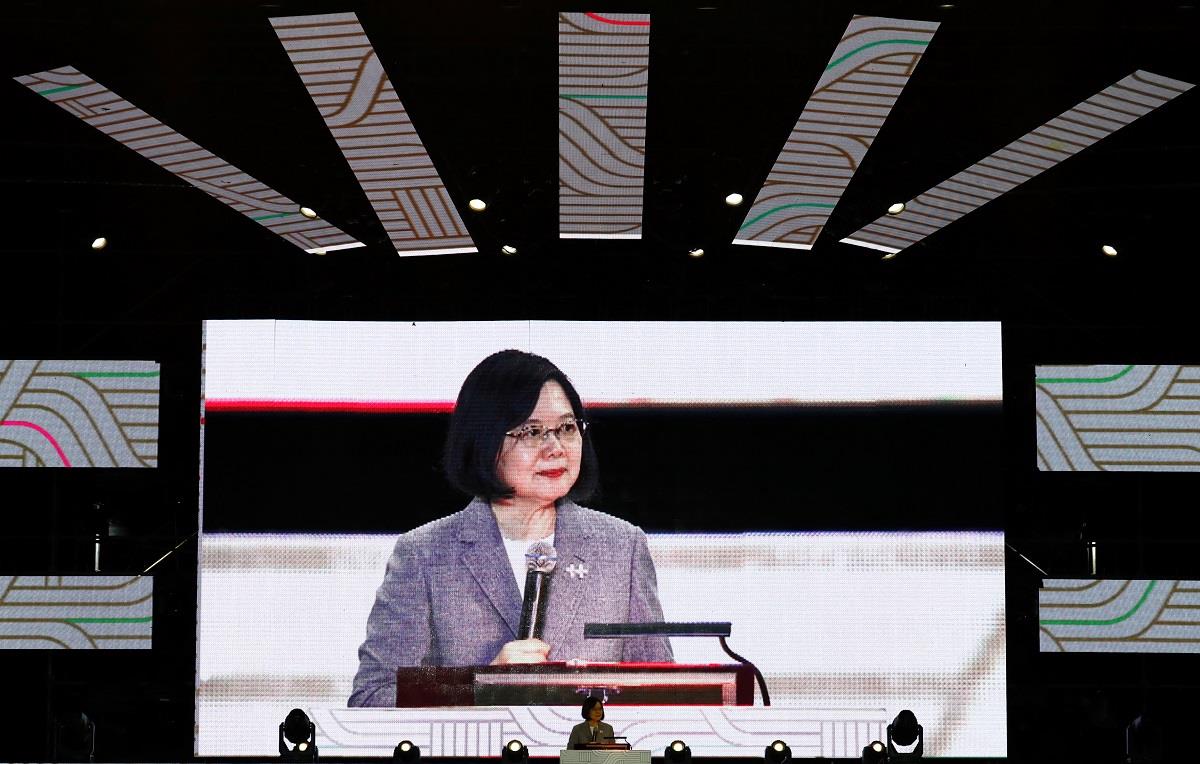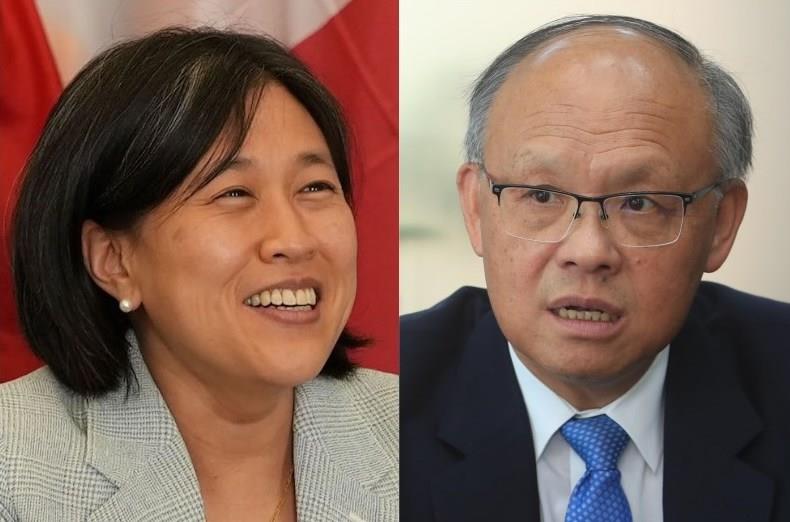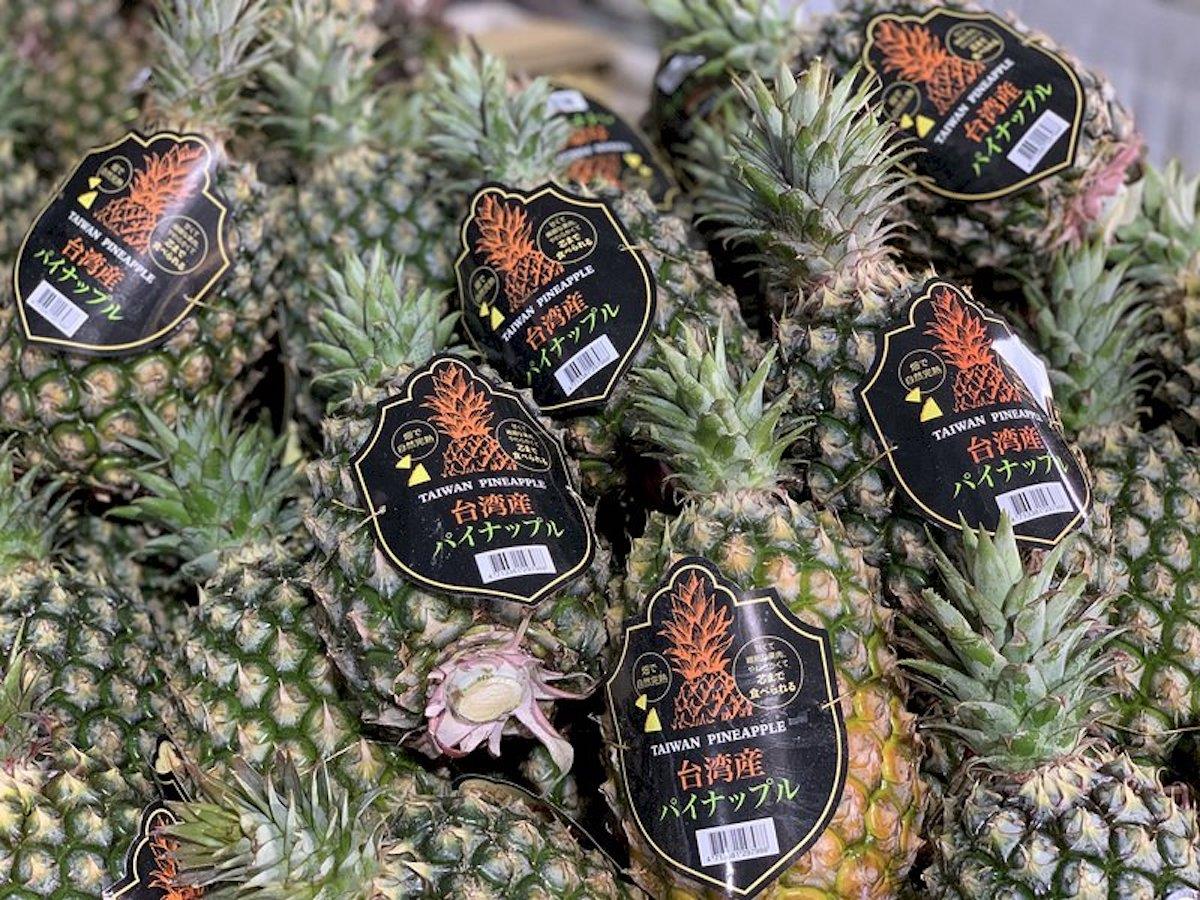(MENAFN- Asia Times)
The United States and Taiwan have announced they will begin trade deal negotiations this fall, the latest move to stoke Bejing's ire after top-level US congressional visits to the self-governing island.
China's Foreign Ministry spokesperson Wang Wenbin said Thursday (August 18) that China has always been against any country negotiating economic and trade agreements of sovereign implication or official nature with Taiwan. Wang said the US should not repeat its“wrongdoing” and that China would act“resolutely” to defend its sovereignty and integrity.
Wang's strongly worded comments came after the Office of the US Trade Representative (USTR) announced that the US and Taiwan had reached consensus on the negotiating mandate for the US-Taiwan Initiative on 21st-Century Trade, which was first announced on June 1 this year. The first round of negotiations will take place early this fall.
Taiwanese President Tsai Ing-wen said the negotiation would cover different industries ranging from agriculture to digital trade and that a deal would win give foreign investors more confidence in Taiwan, enabling it to attract more capital and technology from the US and other countries.
Tsai said Taiwan would continue to improve its market system and push forward its plan to join the Comprehensive and Progressive Agreement for Trans-Pacific Partnership (CPTPP), a trade agreement among 11 countries including Japan, Australia, Canada and New Zealand and excluding China.
Academics said in a seminar on July 29 this year that Taiwan could be able to internationalize its financial system and strengthen its role in global supply chains by joining the CPTPP, which it applied to join last September.

Taiwan President Tsai Ing-wen favors closer trade ties with the US. Photo by Ceng Shou Yi / NurPhoto / NurPhoto via AFP)
Since the US-China trade war broke out in mid-2018, the two powers' relations have remained on a downward trend. In January 2020, then-US president Donald Trump and Chinese Vice Premier Liu He signed a“phase one” trade deal in which China agreed to purchase an additional US$200 billion worth of US goods in the following two years.
As of early 2022, China purchased only 57% of the US goods it promised under the deal, according to the Peterson Institute For International Economics, a Washington-based think tank. The US has continued to apply sanctions on various Chinese tech and other companies in another plank of the trade war.
In June, Beijing urged the US to cancel all of its additional tariffs on Chinese goods and said such a move would help reduce US inflation and benefit both economies and the wider world. The Joe Biden administration has not yet announced its decisions on the matter.
A two-hour phone call between Biden and Chinese President Xi Jinping on July 28 failed to achieve an immediate trade breakthrough and relations have since deteriorated sharply after US House Speaker Nancy Pelosi's visit to Taiwan between August 2 and 3.
In response, the People's Liberation Army then held a three-day military exercise in six locations surrounding Taiwan and banned imports of fruits and frozen fish from the self-governing island.
While US-China and China-Taiwan trade relations deteriorate, the US and Taiwan are seeking to forge stronger ties. On Wednesday evening, the Office of the USTR said the American Institute in Taiwan (AIT) and the Taipei Economic and Cultural Representative Office in the US (TECRO) would start the negotiation early this fall.
Deputy USTR Sarah Bianchi said :“We plan to pursue an ambitious schedule for achieving high-standard commitments and meaningful outcomes covering the eleven trade areas in the negotiating mandate that will help build a fairer, more prosperous and resilient 21st-century economy.”
Bianchi said the negotiation would focus on trade facilitation, good regulatory practices, strong anti-corruption standards, enhancing trade between our small and medium enterprises, deepening agriculture trade, removing discriminatory barriers to trade, digital trade, robust labor and environmental standards, as well as ways to address distortive practices of state-owned enterprises and non-market policies and practices.
She said the US would continue to consult with Congress and labor, business, environmental groups and others throughout the negotiations.
The Taiwanese Executive Yuan's Office of Trade Negotiations said in a statement on Thursday that the negotiation would not discuss trade tariffs but focus instead on how to increase Taiwan's economic power and its bilateral trade and investments with the US, connect Taiwan's trade system with others and strengthen the island's market-oriented system.

USTR head Katherine Tai and Taiwanese trade negotiator John Deng in a split photo. Image: Twitter
Taiwan's top trade negotiator John Deng said the coming negotiation would pave the way for both sides to come up with countermeasures against“economic coercion” by China. Deng said the country was keen to sell pineapples, processed meat and orchids to the US.
Official Chinese coercion soon followed. Wang Wenbin, a spokesperson of China's Foreign Ministry, said:“The US must not negotiate agreements involving sovereign implication or official nature with China's Taiwan region or send any wrong signal to the 'Taiwan independence' separatist forces in the name of trade and economic interactions.
“We ask the US to follow the 'One China' principle and the provisions of the three China-US joint communiqués with concrete actions, and stop all forms of official interaction with Taiwan.” Wang said the US should not repeat its“wrongdoing” and miscalculate on this issue.
Ma Xiaoguang, a spokesperson for the Taiwan Affairs Office of China's State Council, said the US wanted to use the Taiwan issue to stop China's reunification and national rejuvenation but it would not succeed.
Ma said the Democratic Progressive Party (DPP), Taiwan's ruling political party, would be punished for colluding with foreign powers in the name of forming trade and economic partnerships.
The US should cautiously handle its trade and economic partnership with Taiwan and respect China's core interests, said China's Ministry of Commerce spokesperson Shu Yuting.
Du Zhenhua, an adjunct associate professor at the Program of Global Business, College of International Studies and Foreign Languages, Chinese Culture University in Taiwan, criticized the US-Taiwan Initiative on 21st-Century trade deal in an article published by Chinatimes.com, a pro-Beijing Taiwanese media, in June.

China suspended the import of Taiwan pineapples on supposed health grounds. Image: Twitter
Du said the trade negotiation would not help cut US tariffs for Taiwanese goods and increase costs for the island's manufacturers. He said the DPP should avoid doing things that would increase military tensions in the Taiwan Strait.
In 2021, 28.2% of Taiwanese goods were exported to mainland China while 14.7% and 14.1% were shipped to the US and Hong Kong, respectively, official statistics show.
In March 2021, mainland China suspended the import of Taiwanese pineapples on claims that it had found“harmful creatures” in shipments of the fruit. Last September, it banned the imports of sugar apples and Java apples from Taiwan as well.
Read: Taiwan's KMT reaches out in vain to the mainland
Follow Jeff Pao on Twitter at @jeffpao3
MENAFN20082022000159011032ID1104727170
Legal Disclaimer:
MENAFN provides the information “as is” without warranty of any kind. We do not accept any responsibility or liability for the accuracy, content, images, videos, licenses, completeness, legality, or reliability of the information contained in this article. If you have any complaints or copyright issues related to this article, kindly contact the provider above.